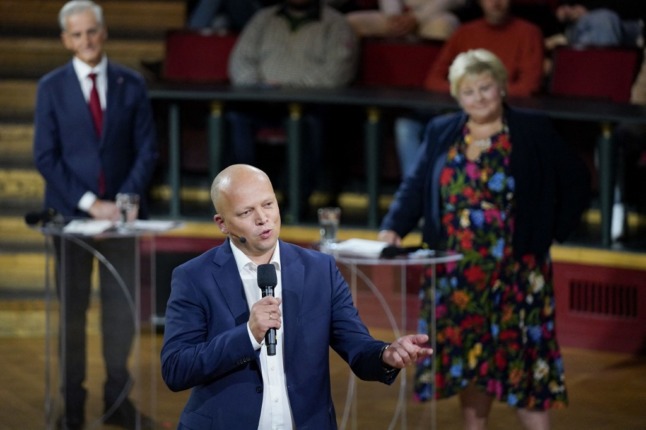These are trying times at SVP headquarters. Even though the party remains the most popular political force in Switzerland, the party has again failed to get a second representative voted onto the Federal Council.
For the second term in a row, Switzerland’s parliament refused on Wednesday to increase the SVP’s presence on the seven-member cabinet.
Up until 2007, the Swiss government was traditionally formed by consensus, with two members each from the three biggest parties, and one from the fourth largest.
The SVP did briefly hold a prized second seat after the 2003 election, but promptly lost it again after the departure of one of its ministers due to in-fighting.
The Swiss press believes the SVP dug its own grave this time around through a mixture of arrogance and ineptitude.
“The SVP has come across as a headless chicken throwing Jean François Rime [one of two members aspiring for a seat] into a pathetic fight that was doomed to failure from the start,” writes Le Temps.
La Tribune de Genève says leader Christoph Blocher and his acolytes have been “unable to see that the party’s base does not want to follow the path of radicalization.”
“This election has also shown the absence of a replacement behind Blocher, the castrating father,” it adds.
In the German-speaking part of Switzerland, the Tages-Anzeiger adds its voice to those calling for a leadership overhaul.
“The party should use the next four years to establish astute candidates acceptable to a majority of parliamentarians, which the centre-left Social Democrats managed to do.”
Tabloid Blick agrees, arguing that the conservative party has a “serious problem to solve”, and “it’s called Blocher-SVP.”
Der Bund takes a similar view. “Blocher led the SVP to the top with good instincts and a brilliant sense of strategy”. But, the Bernese papers adds, “His biggest task is yet to come: he must learn that he is not infallible and that he can no longer lead his party as Lenin led the Bolsheviks.”


 Please whitelist us to continue reading.
Please whitelist us to continue reading.
Member comments